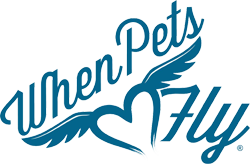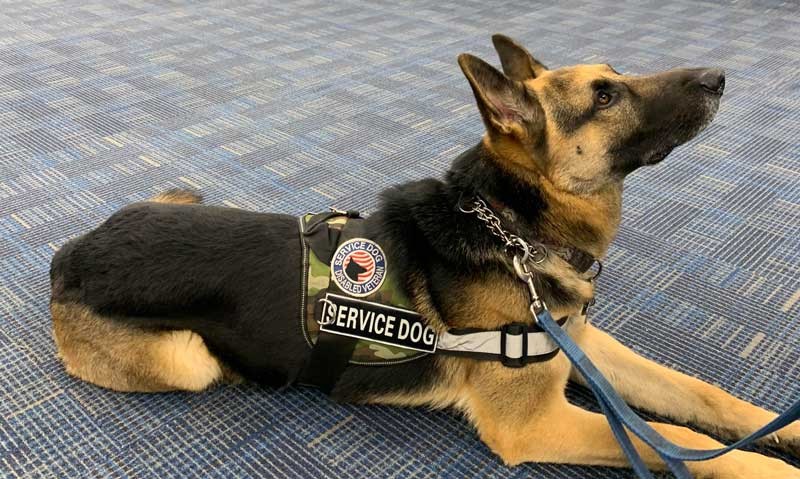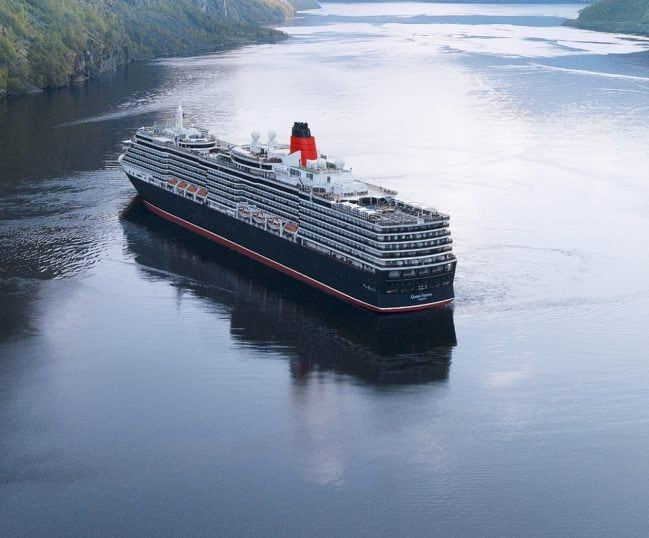Cunard Service Dog Program
Sailing with a service animal.
Please notify us before your voyage of your request to sail with a trained service animal such as a seeing eye dog or hearing assistance dog. Emotional support animals are not recognized by the United States Department of Justice as service animals and therefore are not permitted to sail on Cunard vessels. All requests to sail with a trained service animal must be reviewed and approved by our Access Office. Please send your request to the Access Office at
Vaccinations and other treatments.
It is the responsibility of the owner to obtain all of the required vaccinations and determine that the appropriate health criteria are met. The medical certificate must be obtained from a veterinarian and also state that the animal is in good health. All paperwork must be sent to the Access Office at
Harness/lead.
Your animal must wear its leash, or harness, at all times when not in the stateroom. Due to the nature of cruising, we are unable to provide a safe off-leash area for service animals.
We carry small and large animal life jackets on each of our vessels. The relevant life jacket will be placed in your stateroom alongside your own.
Disembarkation in ports of call.
It is the responsibility of the owner to research each country's individual regulations, including re-entry to the United States, in order to go ashore with their service animal.
Cunard cannot be held responsible should your animal be denied entry upon disembarkation in the United States for not following regulations.
World Voyages.
Unfortunately, due to certain international port restrictions and laws, which Cunard must abide by, we are unable to allow service animals to sail on our World Voyages.
Returning to or entering the United States.
Whether returning or coming to the United States, all service animals must appear healthy. If your animals are coming from a high-risk country for rabies, they must have valid rabies vaccination certificates to enter the United States.
- Dogs must be at least 12 weeks old to get the rabies vaccination.
- If this is your dog's first rabies vaccination, you will have to wait 28 days before traveling to allow the vaccine to take effect.
- If you're not sure or don't have proof your dog was vaccinated before, have your dog vaccinated; then wait 28 days before traveling.
- If your adult dog's rabies booster is current, you can travel without waiting 28 days.
- Your dog's rabies vaccination certificate must be valid for the duration of your trip.
Some states may require other vaccinations and health certificates. Check with your destination state's health department before you leave on your trip.
Some airlines, cities, or states restrict certain breeds, so be sure to check before you travel.
The US Department of Agriculture has additional restrictions for some dogs arriving in the United States, such as working dogs.
Food and bedding.
Please ensure that you bring a suitable supply of all dry food and water bowls plus any applicable blankets and bedding. Animals can only be fed in the stateroom, and under no circumstance should your animal be fed food or treats in any public areas.
We do allow service animals into our restaurants. However, your animal must remain at the table, on the floor and leashed. Should you be traveling alone, our crew will be happy to assist you with food selection and carry your tray back to the table.
Animal toileting.
The vessel will provide a wooden 4ft x 4ft box that will be filled with mulch. Your stateroom location will determine exactly where the "litter box" will be placed, and we will endeavor to ensure that this is as close to your stateroom as possible without compromising safety.
On your arrival, your stateroom steward will show you the location of the relief box. Please note that litter boxes cannot be placed on stateroom balconies or inside the stateroom itself.
We would ask owners to clean up after their dog, and our staff will advise you once you are on board where to dispose of your dog's waste. The box will be emptied and replenished by the staff on board every day.
Accessible areas of the ship.
Assistance dogs are welcome in all areas of the ship apart from:
- Designated children's areas
- Swimming pools or the "beach" area surrounding the pool where water may flow freely in and out of the pool.
- Whirlpool
- Crew areas
- Galley visits.
We do not allow assistance dogs to use the kennel facilities on Queen Mary 2.
Vet on board.
We currently do not offer vet services on board any of our ships, and the ship's doctors are unable to assist should your animal be taken ill on board. Therefore, it is imperative that you consult your vet prior to your voyage for advice to ensure your animal is fit to travel. It may be a good idea to talk to your vet regarding motion sickness.
Sign up for travel news, updated regulations and advice to followers in our next Newsletter




